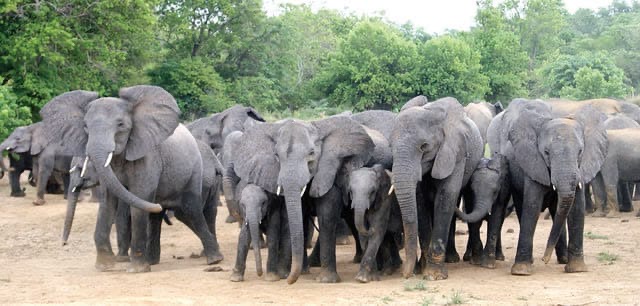Nigerian government has inaugurated the National Elephant Action Plan (NEAP) to confront poaching and illegal trade in the country’s wildlife.
NEAP is designed to be a tool for planning and monitoring elephant conservation measures.
It would also serve as a framework for the strategies and decision- making of all relevant government institutions, donors agencies and NGOs.
Dr Iziaq Salako, the Minister of State for Environment, stated this at the unveiling of the document on Tuesday in Abuja.
He said that the inauguration of NEAP was another step in the determination of the Government to continue to protect Nigeria’s natural resources and wildlife.
Salako said that the event marked another milestone in the Federal Government’s progressive efforts to reverse the current negative trend.
He said this would secure the preservation and conservation of the country`s rich biodiversity with focus on the elephant.
“Elephants are special creatures whose demonstration of the finest humans’ traits like self-awareness, intelligence and empathy is unmatched among the animal kingdom.
” It is common knowledge that threats to our biodiversity and indeed our iconic wildlife species of global significance such as elephants are becoming endemic in Nigeria,” he said.
The minister said that the Government is very conscious of this emergency and is not leaving any stone unturned in halting and reversing the ugly situation.
” Elephants are part of our history and heritage in Nigeria and the world-famous culture.
” They are critical ecosystem engineers, forest gardeners and seed dispersers supporting the growth of flora and fauna and fostering biodiversity.
” In many culture, they are source of livelihood sustenance, especially through eco-tourism,” he said.
He said that Nigeria’s elephant population was under severe threat, particularly the small, isolated populations of forest elephants, believed to reproduce much more slowly than savanna elephants.
In a remark, Sharon Ikeazor, a former minister of State for Environment and Chairperson, Elephant Protection Initiative (EPI) Leadership Council, said Africa elephant is more than just an iconic species.
” It is a keystone in our ecosystems and a symbol of our natural heritage, ” she said.
She said that Nigeria is one of the relatively few countries in Africa that had both forest and Savanna elephants, adding that both were now being depleted.
Ikeazor said that the elephant population had declined over the years, majorly due to ivory demand in addition to habitat loss and human wildlife conflicts.
She said that to arrest the ugly trend, the EPI in partnership with Wildlife Conservation Society (WCS) initiated the process of producing the NEAP document.
Ikeazor called on all stakeholders to reaffirm their commitment to the cause of elephant conservation.
























